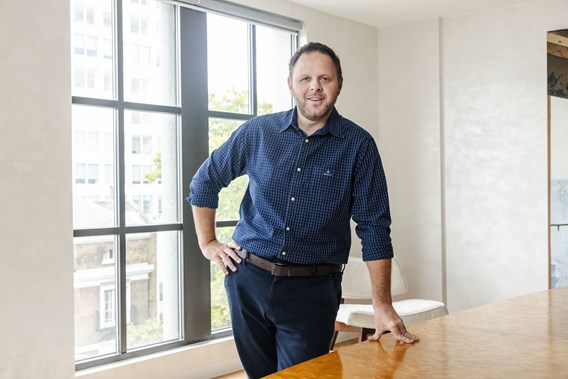
Funding the Green Revolution – the role of the property finance market is driving sustainable construction
Funding the Green Revolution – the role of the property finance market is driving sustainable construction
 |
| The commercial property sector has dealt with its fair share of challenges in recent years. The pandemic not only shifted output but also dramatically changed how we live and work in ways that show no signs of reversing. The subsequent inflationary environment that we are all now experiencing is putting pressure on developer margins, operating costs and asset values. Against this backdrop, the UK continues to grapple with a chronic undersupply of housing stock and a growing population that needs housing solutions. |
With such headwinds, are sustainability considerations a luxury that the industry cannot presently afford to indulge? At Puma, we don’t think so. In fact, quite the contrary; we are firmly of the view that sustainability needs to be front and centre of the UK’s strategy to Build Back Better (remember that?) And we want to explore how our particular part of the market – the property finance industry – can best support the developer and investor community who will be fundamental in determining how successfully we as a nation will rise to this challenge.
Tackling challenges and changing mindsets
ESG is a commonly used term. One of the initial hurdles to the adoption of more ‘ESG-friendly’ behaviours can be the multitude of different ways to measure “impact” and deliver change (of which more below…). But change there most certainly needs to be. On the environmental front, nearly 40% of global carbon emissions come from the built environment and the carbon footprint of the construction industry is significant.
As an industry, we may have been asleep at the wheel for far too long, but they are increasing signs of a wakening from this slumber. With arguably ‘soft’ targets in place such as the UK Government’s 2050 net zero strategy, as well as ‘harder’ regulations such as the requirement for all commercial buildings to have a minimum EPC rating of ‘B’ by 2030, it is estimated that £90bn will be invested across the ‘green building’ sector in the UK by 2030.
The goals of sustainable construction, as we see it, are to reduce the industry’s impact on the environment. Sustainable construction initiatives may include using renewable and recyclable materials, minimising the embodied energy in building materials, reducing the energy consumption of the finished building, tackling on-site waste and protecting the natural habitats during and after the construction phase.
With such significant change needed, this won’t happen overnight, and it comes with multiple challenges. Cost is often cited as a prohibitive factor, particularly in the current inflationary times as contractors are under increasing pressure to reduce costs where possible. Sourcing sustainable materials can also be difficult as in many cases, they are simply not widely available or are only produced in small quantities. The Deloitte London Office Crane Survey (2022) highlighted that, according to developers, cost is the biggest barrier to office development (100% of respondents), followed by the demands of meeting ESG requirements (93%).
In the residential market, consumer trends are not yet highlighting any material ‘green premium’. Recent research from Zoopla identified no significant differences in the sales prices achieved for otherwise comparable properties between those with EPC ‘A’ or ‘B’ ratings versus those scoring ‘F’ or ‘G’. And anecdotal evidence suggests that buyers of new homes are often resistant to sustainability measures such as lower pressure water fixings or externally fitted heat pumps. The recent Sustainable and Affordable Housing Report from the World Green Building Council challenges the notion that affordable and sustainable housing is not a mass market solution, but there’s clearly a huge amount of work still needed to turn this into reality.
Building a partnership to explore potential solutions
With so much conflicting debate around sustainable construction, it can be difficult to know where to start when it comes to potential solutions. In this context, perfection can often be the enemy of the good. At my company, Puma Property Finance, which provides funding of £10m to £50m for residential and commercial developments across the UK, we focus on the sustainability credentials of the projects we support as part of our underwriting process.
We know we need to go further. However, we are also conscious that we are a tiny cog in the huge machine that is the property finance industry. To think that any actions that we might take unilaterally could move the industry would be fanciful. So we decided upon a different approach.
We have partnered with UCL to support their creation of a new world-class research centre focused on developing sustainable practices in the construction industry. This new ‘Centre of Sustainable Governance and Law in the Built Environment’ will seek to bring together the voices of industry, public policy and academia to provide a more holistic approach to the understanding of sustainability practices in the built environment. It is our view that only by uniting all stakeholders in the debate can we hope to land upon solutions that are seen as sufficiently rigorous, objective and independent to encourage wide-scale adoption.
What’s in it for the property finance sector?
Within the property finance sector there can be a lot of cynicism around sustainability. We have heard concerning stories of mainstream finance providers withdrawing ‘green’ products in recent times to avoid potential accusations of greenwashing. This is a worrying trend. While there may always be some who seek to jump on the bandwagon for personal gain, in the long term the risk of this is far outweighed by the risk of major industry players doing nothing for fear of criticism.
And for those who remain unconvinced by the ‘moral’ case, the economic one is strengthening all the time. Commercial office space is a perfect example. With the post-COVID landscape forcing companies to embrace home and hybrid working, occupier dynamics are undergoing a fundamental shift. Employers need less space, but their requirements for that space in terms of quality and sustainability credentials have never been higher. This makes perfect sense. Greener buildings are cheaper to run, have more longevity and are increasingly an expectation of millennial and Gen Z employees. It is therefore as much an economic argument as it is an altruistic one for developers and investors, and by extension their funders, to focus on delivering high levels of sustainability wherever possible.
So, where next?
Despite the present economic headwinds, in our view the long term direction of travel for sustainable construction seems clear. At Puma, we are concerned with how the property finance sector can best help to drive and accelerate this trend.
It may be that lenders determine their individual lending approach through introducing initiatives such as green loans or incentives for developers to adopt greater sustainability measures. Provided these are done in an authentic way, we applaud these actions. For us at Puma Property Finance, partnership is key to the development of solutions that will be most impactful and will encourage the widest level of adoption. We hope our partnership with UCL can bring the leading minds in the industry together to research, debate and innovate what more can be done to address what is unquestionably the greatest challenge of our times.
Further information
‘The Centre of Sustainable Governance and Law in the Built Environment’ will sit within the Bartlett School of Sustainable Construction at UCL: the first built environment faculty in the UK, and one of the global leaders in this field. The ten-person research team will be led by Dr Armando Castro, an Associate Professor at UCL, who has been researching and writing about ESG related themes since 2014. Other team members’ expertise spans economics, finance, civil engineering, surveying, geography, management and law, in order to tackle and solve the wide-ranging issues across the industry.